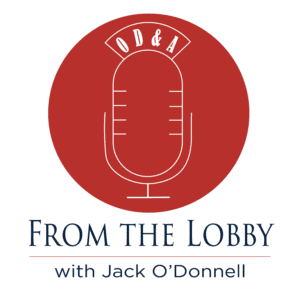Good Morning from Right Field Remembering American Icon Hammer’ Hank…
Back in the nation’s capital, Speaker Nancy Pelosi will formally deliver Articles of Impeachment to the 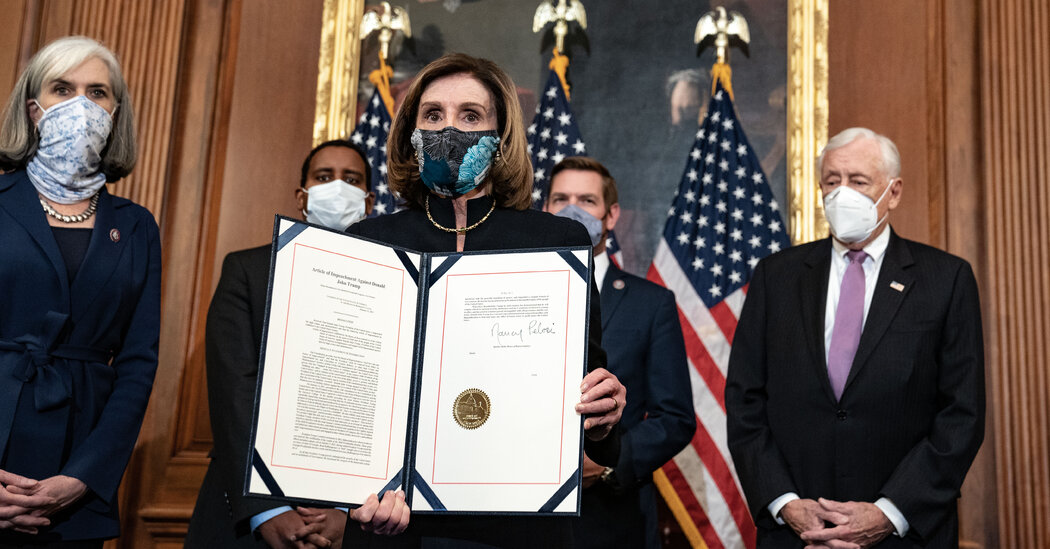 Senate charging former President Donald J. Trump on a charge of “incitement of insurrection.” Senate leaders reached a bipartisan agreement on a timeline for an impeachment trial kicking off the week of February 8th. The schedule will allow the Senate to spend the next two weeks holding confirmation hearings and perhaps beginning discussions on Biden’s relief proposal while allowing time for the two legal teams to develop impeachment briefings.
Senate charging former President Donald J. Trump on a charge of “incitement of insurrection.” Senate leaders reached a bipartisan agreement on a timeline for an impeachment trial kicking off the week of February 8th. The schedule will allow the Senate to spend the next two weeks holding confirmation hearings and perhaps beginning discussions on Biden’s relief proposal while allowing time for the two legal teams to develop impeachment briefings.
Between the Articles of Impeachment, a $1.9 trillion stimulus package, and a mountain of Biden Administration confirmations, the 117th Congress already has a packed agenda, but first the Senate leaders must come to an agreement on how the Senate will function.
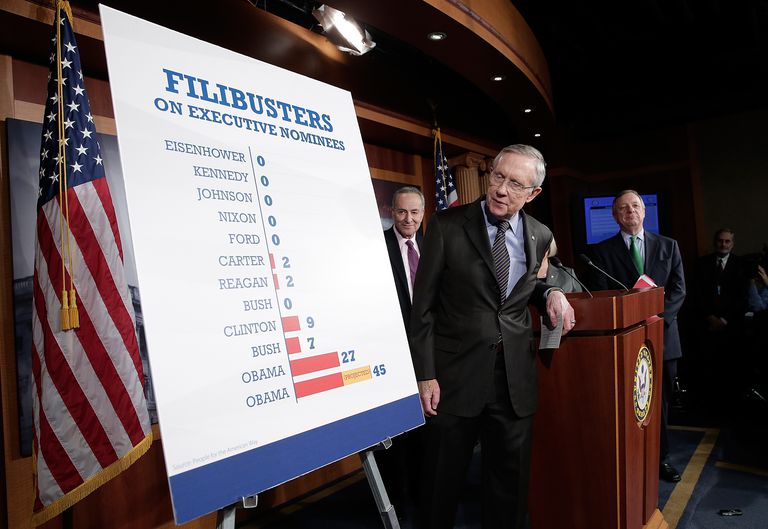
The Senate is now split 50-50. With Vice President Kamala Harris able to break ties, that gives Democrats control of the Senate floor and calendar. However, Republicans still hold Committee Chairmanships absent a new organizing resolution. An early argument over these rules could indicate just how much the GOP intends to obstruct legislative priorities (and how truly committed the Democrats are to bipartisanship). Generally, both sides agree the Senate should function under the rules adopted in 2001 under then Democratic Majority Leader Senator Tom Daschle and Republican Minority Leader Senator Trent Lott (the last time there was a 50/50 split). The biggest sticking point: the legislative filibuster. Republican Senate Minority Leader Mitch McConnell wants to keep the filibuster intact, preventing Democrats passing legislation with a simple 51-vote majority. The issue is particularly sticky since Republicans can currently filibuster the organizing resolution itself. Republicans still confusingly “lead the Senate” until there is a deal. The delay is already impacting the Senate’s operation. Republicans are leading confirmation hearings for the time being—which could significantly stimy progress on confirming Biden’s picks.
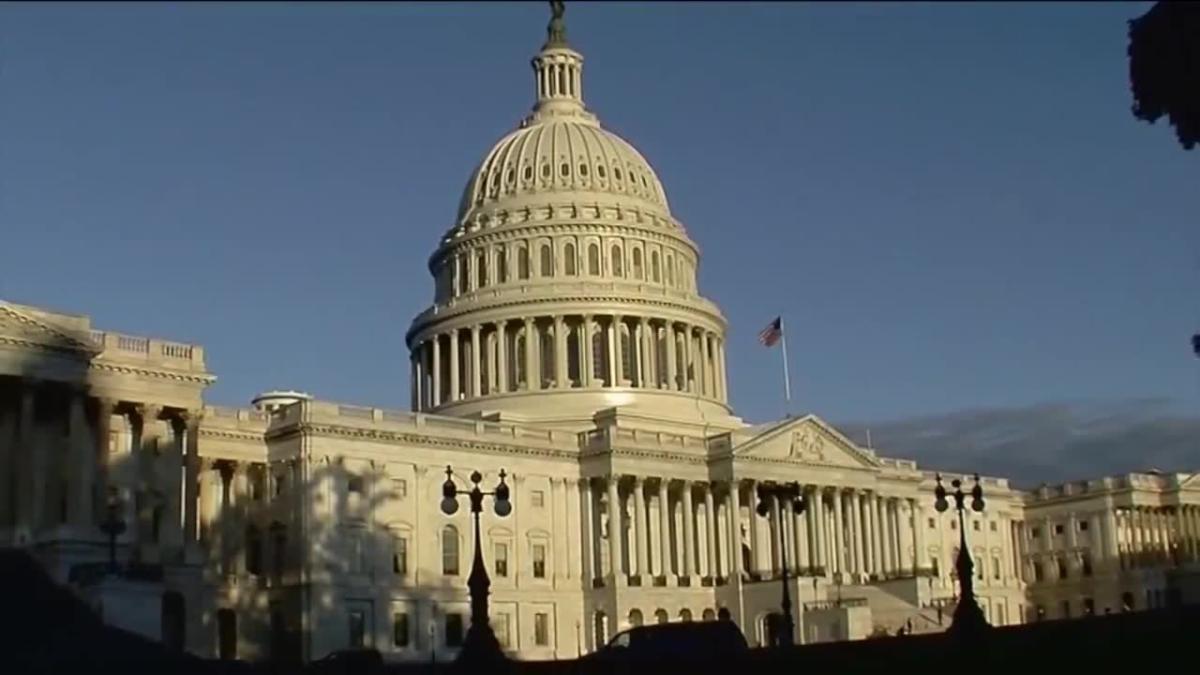 117th Congress. A bipartisan group of 16 senators (dubbed the “Sweet Sixteen”) spoke over the weekend with a White House aide about coronavirus relief. The phone call with National Economic Council Director Brian Deese, confirmed by a source familiar with the plan, was used to discuss President Biden’s roughly $1.9 trillion coronavirus relief proposal. The Senate group includes many of the same members as last year’s “908” coalition, who created a framework credited by leadership as breaking a months-long stalemate on a fifth round of coronavirus help.
117th Congress. A bipartisan group of 16 senators (dubbed the “Sweet Sixteen”) spoke over the weekend with a White House aide about coronavirus relief. The phone call with National Economic Council Director Brian Deese, confirmed by a source familiar with the plan, was used to discuss President Biden’s roughly $1.9 trillion coronavirus relief proposal. The Senate group includes many of the same members as last year’s “908” coalition, who created a framework credited by leadership as breaking a months-long stalemate on a fifth round of coronavirus help. - The GOP senators in the group are Susan Collins (Maine), Lisa Murkowski (Alaska), Mitt Romney (Utah), Rob Portman (Ohio), Bill Cassidy (La.), Shelley Moore Capito (W.Va.), Jerry Moran (Kan.) and Todd Young (Ind.).
- The Democrats are Sens. Joe Manchin (W.Va.), Mark Warner (Va.), Maggie Hassan (N.H.), Jeanne Shaheen (N.H.), Mark Kelly (Ariz.), John Hickenlooper (Colo.), Dick Durbin (Ill.) and Independent Sen. Angus King (Maine), who caucuses with Democrats.
Back in New York…
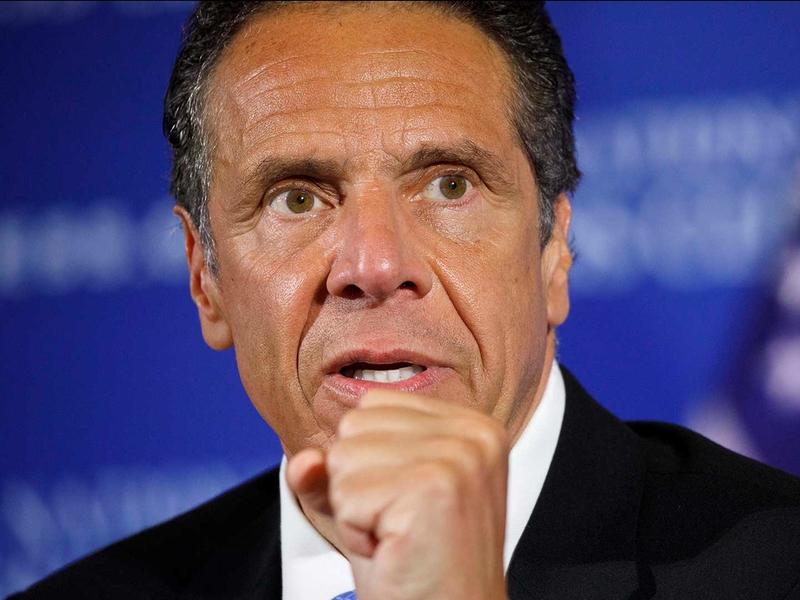 Governor Andrew Cuomo unveiled his Executive Budget proposal last week, which, as O’Donnell & Associates predicted in our 2021 preview, included a proposal for recreational marijuana, a plan for the implementation of mobile sports wagering, and $150 million in funding for another round of the Regional Economic Development Councils in 2021, as well as a very broad data privacy proposal, the New York Data Accountability and Transparency Act (if you are confused… yes, that is the same name of Federal Draft Legislation that Democratic Senator Sherrod Brown of Ohio is currently pushing in Congress), the Medical Supplies Act—effectively Buy America for PPE and medical supplies in New York—and an extensive expansion of telehealth reimbursement. Read the Executive Budget Legislation here.
Governor Andrew Cuomo unveiled his Executive Budget proposal last week, which, as O’Donnell & Associates predicted in our 2021 preview, included a proposal for recreational marijuana, a plan for the implementation of mobile sports wagering, and $150 million in funding for another round of the Regional Economic Development Councils in 2021, as well as a very broad data privacy proposal, the New York Data Accountability and Transparency Act (if you are confused… yes, that is the same name of Federal Draft Legislation that Democratic Senator Sherrod Brown of Ohio is currently pushing in Congress), the Medical Supplies Act—effectively Buy America for PPE and medical supplies in New York—and an extensive expansion of telehealth reimbursement. Read the Executive Budget Legislation here.
Most notably, the Executive Budget Proposal is contingent on the state receiving federal, state and local aid. The Governor has prepared for two scenarios: either New York State 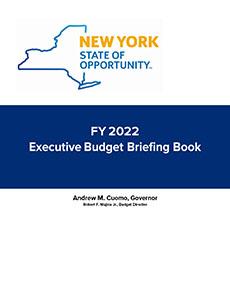 receives about $6 billion in a “worst case” scenario or $15 billion in what Cuomo described as a “fair funding” scenario. In the “worst case” scenario, the State would need to cut services, raise taxes, and borrow significant amounts to account for the remaining $9 billion budget gap. Cuts would include taking $2 billion from state funding for schools and $600 million less in Medicaid funding, and a tax hike that would leave New York with the highest state income taxes in the nation. “I would consider that the 2021 version of the federal government saying ‘drop dead’ to New York,” Cuomo said.
receives about $6 billion in a “worst case” scenario or $15 billion in what Cuomo described as a “fair funding” scenario. In the “worst case” scenario, the State would need to cut services, raise taxes, and borrow significant amounts to account for the remaining $9 billion budget gap. Cuts would include taking $2 billion from state funding for schools and $600 million less in Medicaid funding, and a tax hike that would leave New York with the highest state income taxes in the nation. “I would consider that the 2021 version of the federal government saying ‘drop dead’ to New York,” Cuomo said.
Up next in the State Budget process are Joint Legislative Budget hearings, which kick off tomorrow and will run through February 23rd. The full schedule can be found here. The yellow book, the Assembly’s review of the Executive Budget, is also expected later today. This analysis will offer clues to how much—and what specifically—the Assembly plans to challenge in the budget.
— Jack O’Donnell
OD&A in the News…
Jack O’Donnell Explains What Biden’s First 100 Days in Office Could Mean for WNY
OD&A Client Transforms South Buffalo’s Schoellkopf Power Station into Events Center
FOR DAILY UPDATES, FOLLOW US:
Poet Amanda Gorman Made History With Her Inauguration Speech
“I really wanted to use my words to be a point of unity and collaboration and togetherness. I think it’s about a new chapter in the United States, about the future, and doing that through the elegance and beauty of words,” says Gorman. [Read more.]

Biden Revamps the Oval Office: President Adds Bust of Cesar Chavez and Removes Controversial Portrait
The incoming Biden administration isn’t just changing policy: it’s redecorating the White House too. [Read more.]

Tiger King Star Joe Exotic Thought President Trump Might Pardon Him. The Call Never Came.
The blond mullet-wearing zookeeper, known for his expletive-laden rants on YouTube and a failed 2018 Oklahoma gubernatorial campaign, was prominently featured in the popular Netflix documentary “Tiger King: Murder, Mayhem and Madness.” [Read more.]
O’Donnell & Associates 2021
Preview of New York Policy & Politics
NYS Legislature: New Member Spotlight
Assembly Member Bill Conrad was elected to represent the 140th Assembly District—which includes parts of the cities of North Tonawanda and Tonawanda, the Town of Tonawanda, and the Village of Kenmore in Western New York—to replace retiring Assembly Member Robin Schimminger, who had represented the district since 1977.
Much like his predecessor, Bill is a moderate Democrat. In Albany, he plans to focus on economic development and amending codes and regulations to support small businesses. This session, he will serve on the Committees on Education; Energy; Local Governments; Science & Technology; and Tourism, Parks, Arts, and Sports Development.
Prior to his election, Bill served on the Tonawanda Town Board for four years. Over that period Bill fought for the closure of dangerous polluters, helped develop a state mitigation fund after the closure of the NRG Huntley Plant, and worked to develop a blueprint for the community’s economic future called Tonawanda Tomorrow. Moreover, he led the Town Committee on a NYSERDA Clean Energy Community Designation and the U.S. Department of Energy’s award-winning Solarize campaign, which turned a landfill into a “bright-field” with solar panels generating low-cost, clean energy.
As a volunteer, Bill has been a very active member of the community. He served on the Erie County Youth Board and founded the Kenmore Youth Rugby Club. Additionally, Bill is a member of the Clean Air Coalition, Kenmore-Town of Tonawanda Chamber of Commerce and a parishioner of St. John the Baptist Church in Kenmore.
Bill began his career as a social studies teacher and coach in the Kenmore-Town of Tonawanda public schools, where he worked for 21 years. He is a lifelong resident of the Town of Tonawanda, where he resides with his wife, Mary Kate, and their four young children: Emma, Liam, Katie and Molly.




